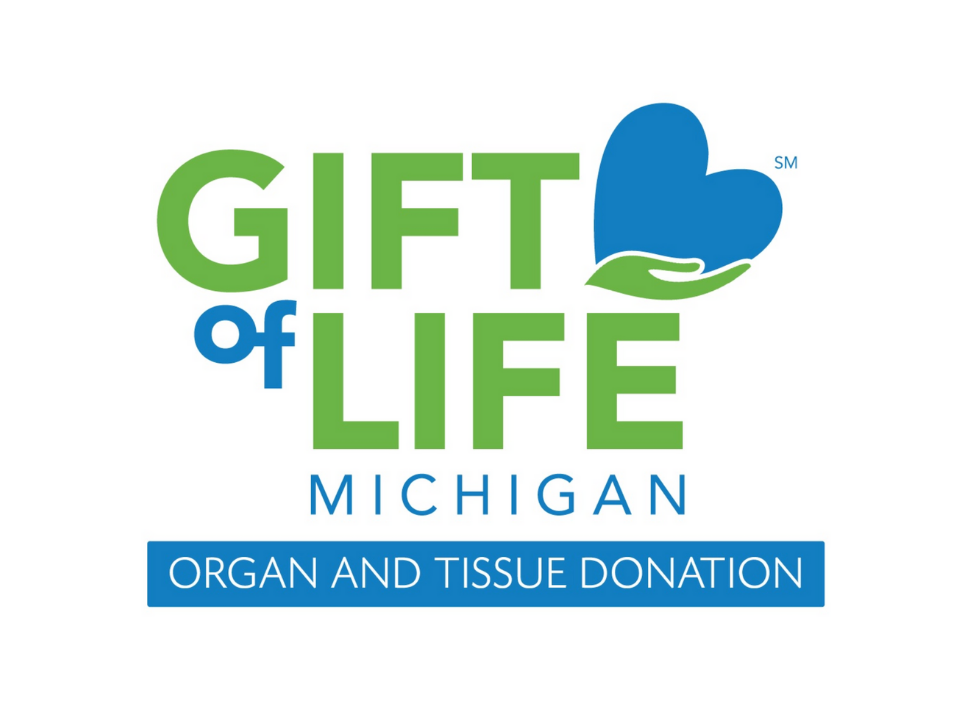In the United States alone, there are currently over 100,000 people on the national transplant waiting list. This includes people of every age, ethnicity, and gender. During the month of April, Ross is taking part in a partnership campaign with Gift of Life Michigan to raise awareness and further educate our community on the importance of organ donation.
What is Gift of Life?
Gift of Life was started in 1971 by five Michigan transplant surgeons to provide a network to get kidneys to the people who needed them most. They wanted to be able to send information about kidney transplants, and from there, it grew. It’s an organ procurement facility. There are 57 procurement facilities in America. States throughout the nation federally designated these organ and tissue facilities. The headquarters of the organization is in Ann Arbor, Michigan and that is the main place to go for all things organ procurement. Gift of Life also manages the Michigan organ donor registry, which is a confidential database. Currently, it serves 9.9 million people.
What are the different types of donations?
In terms of the types of transplants that can take place, there are organ, tissue, and cornea transplants. The donations vary from person to person because every individual has a unique genetic makeup. But, generally, a single organ donor can save up to eight lives while a single tissue or cornea donor can improve up to 75 lives. For example, a liver can actually go to two people because it’s the only organ that grows back by itself. So some people can donate just a lobe. It usually grows back in two to three weeks, and fully regenerates in a year or so.
The different types of donations include:
Deceased donation
Deceased organ donation is the process of giving an organ or part of an organ, at the time of the donor’s death, for the purpose of transplantation to another person. At the end of your life, you can give life to others. Typically, in order for a person to become an organ donor, blood and oxygen must flow through the organs until the time of recovery. So the majority of donors are on ventilators at the time of death.
Living donation
Living donation offers another choice for some transplant candidates, which reduces their time on the waiting list, and oftentimes, leads to better long term outcomes for the recipient. Individuals can even choose to remain anonymous should they choose to donate. There are different types of living donations. For example, there is directed donation, non-directed donation, kidney paired donation, and tissue donation.
Pediatric donation
Pediatric donation is a little bit different than adult donation. Organ size is actually really important when it comes to transplants. Children often respond better to child-sized organs, while adults respond better to adult-sized organs. To date, there are approximately 1,900 children under the age of 18 waiting for an organ.
Who can donate?
Anyone who donates must be over the age of 18 and they must be in good overall physical and mental health. As is the case with every procedure, there are risks involved. If the donor has any health problems, they could harm a transplant recipient. There is also the risk of the body rejecting the organ as it is something foreign. So transplant recipients normally have to be on anti-rejection meds after the surgery takes place. Risk exists for living donors as well. They can develop infections or have a more difficult recovery. Typically, a complete full medical and psychosocial evaluation is completed prior to the transplant. It’s all based on medical compatibility. So just because you are an organ donor, it does not necessarily mean that you will donate an organ. Ethnicity also plays a huge role. When you’re being matched with a donor, you’re typically more likely to find a match from someone with the same ethnic background as you.
What is the registration process to become a donor?
You can become an organ donor when you update your license or if you go and get a new state ID at the secretary of state’s office. You can also log into the secretary of state’s website and do it from there. If you’re a Michigan resident, you can visit https://giftoflifemichigan.org/become-a-donor. If you’re outside of Michigan, you can go to https://www.donatelife.net/ and there’s a place to register on the front page.
How to get involved in National Donate Life Month
During the month of April, Ross will be taking part in various campus activities to raise awareness for National Donate Life Month. For the week of April 18th, we will focus on preparing for Blue and Green Day, which is April 22nd. The goal is to have as many campuses as possible participate in dressing in blue and green clothing and take pictures to submit for Donate Life’s photo contest. Details about the contest can be found at https://www.donatelife.net/blue-green-day-photo-contest/. Students can find more information on campus and on their online learning platform, Canvas. Be sure to also check out our social media @rossmedical for regular updates!
